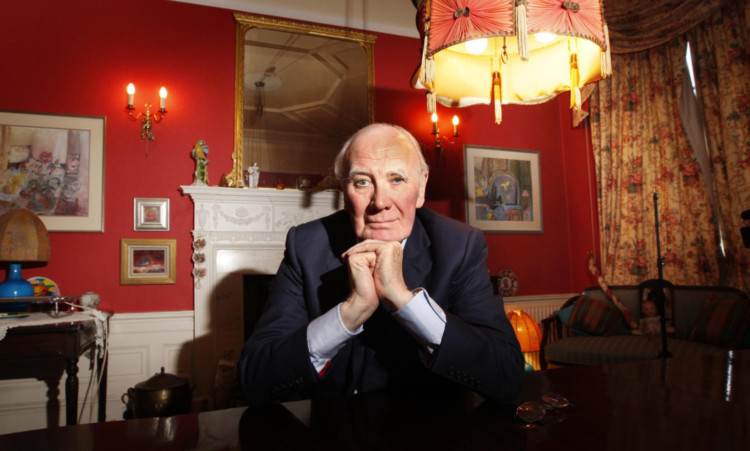As the Prime Minister recalls parliament over the deepening crisis in Syria, Sir Menzies Campbell tells Jack McKeown why he will not be supporting military action.
Syria is close to boiling point. According to America, Britain and their allies, Syrian forces used chemical weapons, killing up to 1,200 civilians including women and children. It now seems likely that the US will lead strikes against military targets in Syria.
The Syrian leadership denies it was responsible for using the banned weapons and its allies in the Kremlin and Beijing say Western military intervention would have catastrophic consequences for the region. US Defence Secretary Chuck Hagel has said US forces are “ready to go” if given the order to attack.
David Cameron has cut short his holiday to deal with the crisis. Parliament has been recalled and tomorrow MPs will vote on possible action against the Syrian leadership.
Former Prime Minister Tony Blair has already backed military intervention. The architect of Britain’s involvement in Iraq said we should “contemplate the future consequence of inaction and shudder: Syria mired in carnage between the brutality of Assad and various affiliates of al Qaida, a breeding ground of extremism infinitely more dangerous than Afghanistan in the 1990s.”
However, Sir Menzies Campbell is deeply concerned that Britain is contemplating military action. The North East Fife MP and former Liberal Democrat leader was the foreign affairs spokesperson for his party and one of the most high-profile opponents of the Iraq War. The 72-year-old remains one of Britain’s most respected voices on international relations.
He says that now is not the time for hot-headed actions.
“The first thing that needs to happen is for Parliament to be recalled,” he says. “That will happen on Thursday and we must sit down and the Government must lay out its case.
“I have very strong reservations about a military intervention, however horrific events on television might look to us. Of course there is short-term outrage at what it appears we are seeing but in any situation like this one must look at the medium to long-term effect.”
Sir Menzies fears strikes on Syria could make an already bad situation worse.
He continues: “There is a theory of unintended consequences that dictates that you may go into something for the very best of intentions but by meddling you can unintentionally make things even worse.
“Another doctrine that is applicable here is mission creep. That is when you do something that you think is right but discover the actions you’ve taken either weren’t enough to achieve your intention or that they actually made things worse. Then you have to do some more to try to repair the damage you’ve done or complete your goals and you end up getting drawn further in.
“In this case it could start with strikes from a US naval vessel but then require the use of aircraft which puts US or British lives in danger. No matter how much they say that this is targeted, proportionate and doesn’t go beyond what is needed, there is always the risk of getting drawn in.
“One thing I’m sure of is that it certainly won’t escalate to the point of sending in troops because there is absolutely no public appetite for that here or, more to the point, in the United States.
“Iraq conditioned the public against military interventions. The proof of that over here is in the continued disapproval of Tony Blair.”
Even if evidence is released that shows beyond reasonable doubt the Syrian government did indeed use chemical weapons on its own citizens, Sir Menzies does not think we should react with force.
“There are those who say that because of this red line that President Obama has drawn over the use of chemical weapons not to take military action could put his authority in jeopardy,” he says.
“That is no defence. You cannot say that doing something which is intrinsically wrong is justified to prevent damage to someone’s reputation, even if they are the President of the United States.”
So what should we do if President Assad’s forces commit further atrocities?
“I don’t think Assad is going to do anything. But in any case Russian support makes intervention much more risky. What is Russia going to do if we get involved? Are they just going to sit back and say, have your military strike and that’s the end of it. That doesn’t seem likely and there are already reports they would retaliate.
“The connection between Russia and Syria is almost umbilical. The two countries are very closely allied. There is the strong possibility they might well feel compelled to do something. This could take the form of strengthening the missile defence systems they provided Syria with or sending technicians to help repair any damage caused by airstrikes.
“Things could very quickly escalate.”
